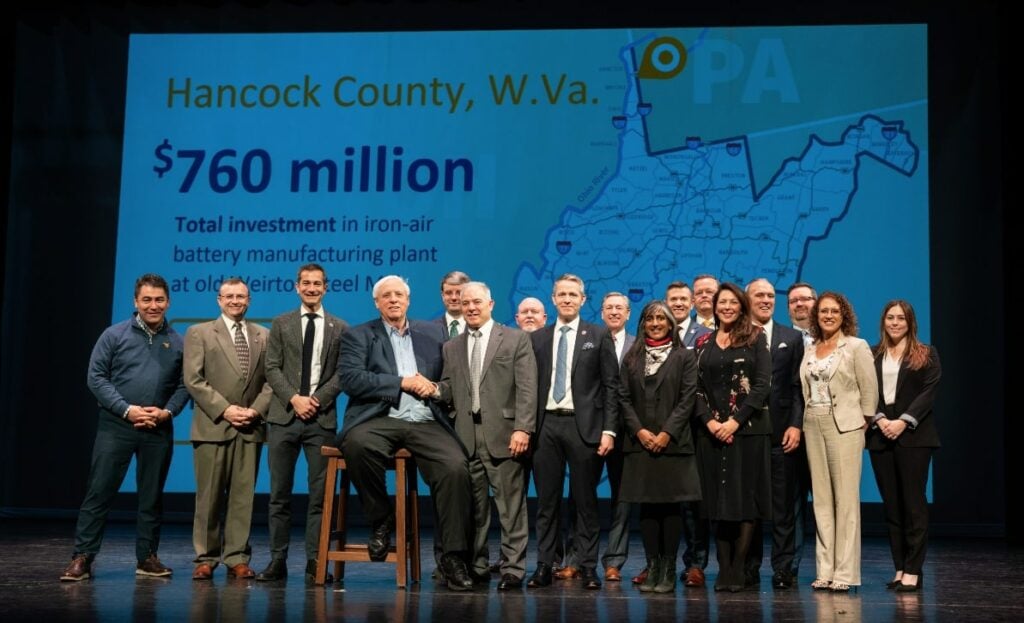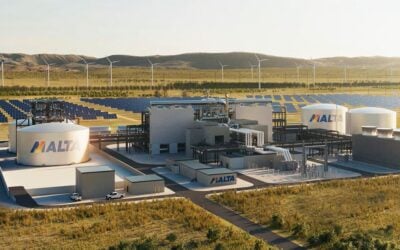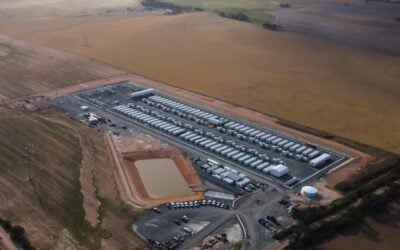
Another utility agreement has been signed by Form Energy, the US startup which claims its iron-air battery can provide sufficient stored energy to ride through multiple days of low solar or wind production.
Puget Sound Energy, an electric and gas utility serving 1.2 million electric customers in the Washington State region of the same name, said on Friday (5 December) that it has signed a memorandum of understanding (MoU) around Form Energy’s technology.
Enjoy 12 months of exclusive analysis
- Regular insight and analysis of the industry’s biggest developments
- In-depth interviews with the industry’s leading figures
- Annual digital subscription to the PV Tech Power journal
- Discounts on Solar Media’s portfolio of events, in-person and virtual
With Puget Sound Energy considering deploying a pilot project in its service area, the pair’s new partnership could see them jointly develop one, which would be a 10MW system with 1,000MWh capacity – equivalent to 100-hour duration.
The key ingredients of Form Energy’s proprietary battery tech are iron and air. Basically, iron inside the battery is rusted (oxidised) as the system charges with electricity, and then de-oxidised as the battery discharges.
Led by CEO Mateo Jaramillo, a former executive at Tesla’s stationary energy storage business, the company’s first agreement for a utility pilot project – a 1MW/150MWh system with Minnesota’s Great River Energy – was announced in 2020.
At that time, the chemistry of Form Energy’s battery wasn’t even public, but the company went on to net a couple more agreements before revealing the role of iron and air inside the systems. Jaramillo told Energy-Storage.news in an interview around that time that Form Energy sees its technology as a key piece to cost-effectively enabling “renewables as baseload”.
Utility coal retirements help drive interest in iron-air tech
The typical profile of their pilot partners is US utilities with large thermal generation fleets, usually coal, seeking options for replacing both the electricity generating capacity and the economic benefit as those assets retire.
One other example is Xcel Energy, which is putting pilot iron-air battery deployments in at two of its coal plant sites, also in Minnesota, including one at which the process of decommissioning – and installing large-scale solar PV ahead of the Form pilot – has already begun.
Xcel got regulators’ approval for one of those two deployments in July, just a few days after Form Energy completed negotiations on a definitive agreement for a 100-hour pilot with Georgia Power.
Puget Sound Energy said a Form Energy system could help the utility meet its requirements under Washington State laws for clean energy as well as its obligations to provide reliable service to customers. Energy storage also enables PSE to offset the need to build generation resources solely for times of high demand.
Washington’s Clean Energy Transformation Act legislation calls for all utility coal generation to be retired by 2025, utilities to be carbon neutral by 2030, and supply 100% renewable and non-emitting resources by 2045.
That’s going to require the biggest change in the utility’s way of doing things in 150 years, it said, and it needs resources to make it happen. PSE said the Form Energy system could be installed and in place by the end of 2026.
Form Energy has been relatively prolific in attracting investment, with around US$800 million raised as of the end of 2022. It is currently building its first battery factory, in West Virginia. In December the company was awarded a US$30 million grant from the California Energy Commission (CEC) towards a 5MW/500MWh project with utility PG&E, building on a similar state-level grant worth US$12 million awarded to it in New York.
It was also among long-duration energy storage (LDES) technology providers shortlisted in September by the US federal Department of Energy (DOE) for a slice of US$325 million in funding to support the commercialisation of LDES.
Energy-Storage.news’ publisher Solar Media will host the 6th Energy Storage Summit USA, 19-20 March 2024 in Austin, Texas. Featuring a packed programme of panels, presentations and fireside chats from industry leaders focusing on accelerating the market for energy storage across the country. For more information, go to the website.






